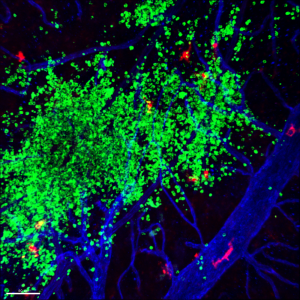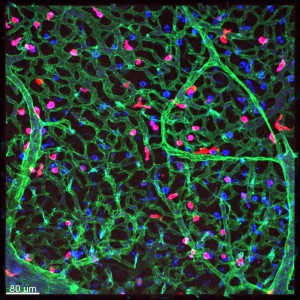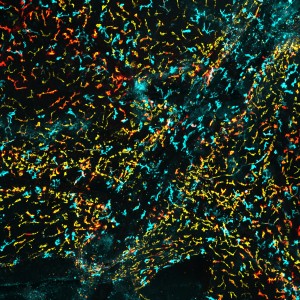Research interests
As an immune-privilege site, the central nervous system (CNS) was long considered a tissue largely devoid of immune cell populations except microglia. However, recent studies have revealed that the CNS host diverse immune cells, particularly at its borders. These discoveries have reshaped our understanding of CNS immunity and raised new questions about how immune cells supress or induce immune reactions with the CNS in both homeostatic and pathological conditions.
Our lab focuses on the immunological features of the CNS with a focus on myeloid cell populations. We investigate the molecular and cellular mechanisms that govern immune cell entry into the brain, the roles of macrophages in blood-brain barrier (BBB) development and maintenance, and the function of antigen-presenting cells within the CNS.



1. Immune cell infiltration into the CNS
We study the mechanisms that allow peripheral immune cells – particularly monocytes and lymphocytes – to infiltrate the CNS. We aim to understand the physiological conditions and the molecular signals that drive their entry during aging, neuroinflammation, and progression of autoimmune disease.
2. Macrophages roles for BBB development and homeostasis
Using advanced genetic tools, we study border-associated macrophages (BAMs) and their critical functions during CNS vascular development and barrier maintenance. By dissecting their interaction with endothelial and stromal cells, we aim to uncover how these macrophages regulate the integrity of the BBB throughout life.
3. MHC class II+ cells in the CNS
We investigate the poorly understood population of MHC class II-expressing cells located in the CNS border, particularly the leptomeninges. Our research focuses on how these antigen-presenting cells shape adaptive immune responses in the steady state, and may influence CNS autoimmunity and neuroinflammation under pathologic conditions.
